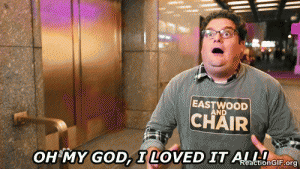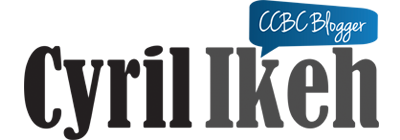
Hello Folks!!
Last week’s quote was: “Nothing is impossible, the word itself says, ‘I’m possible!’’. If you haven’t read that post yet, you should go read it!
I was sitting in the quad yesterday evening, reflecting on how my CSIT quiz went earlier. Not necessarily because I did bad or very good on it but because I had doubts about my answers. This thought came to mind – “It is impossible to know the correct answer to every question”.
Think about it, with the amount of information that people absorb daily, we are all bound to forget some things every now and then. People often feel pressured to have a correct answer to every problem that they face either in school, at home or even in life generally. However, it is often more important to know how and where to find the answer rather than knowing everything or every problem you are facing.
Last summer, I interned at The National Institutes of Health (NIH) at Johns Hopkins University here in Baltimore. Just a little bit about the internship – I was a paid summer research intern in the Laboratory of Genetics and Gerontology (LGG) at the National Institute on Aging (NIA/NIH), under the mentorship of Dr. Kotb Aly and Dr. Supriyo De. I mainly researched and Cultured, Hela Cells and C2-C12 Cells; RNA Isolation from Protein, and Immunohistochemical (IHC) Staining.

It was my first internship so I was unsure of what to expect in a professional office environment. My supervisors and colleagues were extremely supportive and helpful to me but I was still reluctant to admit that I did not know or understand few things they talked about. My reluctance to admit ignorance all changed one day when I stumbled over answering a question I did not know. That was when my mentor told me that it’s okay to be wrong. He stressed to me that instead of feeling bad about not knowing something, you should focus more on learning how to find the answer.
Admitting ignorance shows confidence rather than incompetence. Being able to stand up and say, “I’m not sure, let me figure that out for you,” will earn you tremendous respect in your academic and professional careers.
Every great scientist or inventor started at a point of ignorance. This drove them to discover things like gravity, the Internet, and the theory of relativity. It’s okay to fail, but it’s not okay to let the failure get in the way of finding the answer.
If you have more questions about my internship with the NIH, Comment below and we can chat more 🙂
Have a wonderful Day and week!!!!






It’s nice to cut yourself a break and know it’s o.k. not to know everything. And, I would love to hear more about your internship. It sounds really interesting!
Absolutely, Thanks!